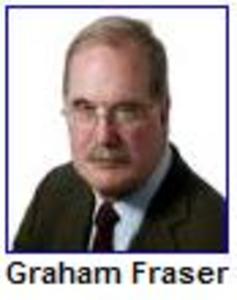Language has emerged once again as a source of strong emotions - anger and pain - revealing that it remains a deeply sensitive subject, a wound beneath the skin in Canadian life. Harsh and heated words have been quoted, parsed, and put in a variety of contexts; a Canadian hockey player has been attacked and defended; a water-cooler story has become a political diatribe that rips at some of the threads of the national fabric.
As Commissioner of Official Languages, I have not been consulted nor have I commented on the specifics of the debate surrounding Shane Doan, and insulting comments that were apparently made at a hockey game in Montreal 17 months ago.
However, there are some broader observations that can be made about language in Canada in 2007, and the sometimes tenuous relations between English-speaking and French-speaking Canadians.
There are few activities that provoke similar levels of passion among English-speaking and French-speaking Canadians. Hockey is one of them. The Richard Riot in 1956 exploded in the streets of Montreal when French Canada's superstar, Maurice Richard, was suspended on the eve of the playoffs by an English-Canadian NHL commissioner. The 2005 film Maurice Richard eloquently evoked an era of pride and prejudice, disdain and resentment in the relations between English and French.
When Eric Lindros, the leading junior player of his day, refused to report to Quebec City after he was drafted by the Nordiques in 1991, the sense of injured pride contributed to the outrage felt in Quebec following the death of the Meech Lake Accord.
Again, with the current controversy, the national game remains a flashpoint for language tensions as English-Canadian anger over parliamentary hearings into Mr. Doan's captaincy matches French-Canadian outrage over his original reported slurs.
There is an element that has been a common factor in all of these incidents: respect.
Thousands of Canadians, on both sides of the language barrier, feel that something - or someone - they consider very important has been insulted.
There are many who feel that any expression of pain at a collective slur is simply posturing. In my experience, the sense of rejection, pain and personal insult that is felt when words of contempt are expressed is genuine and heartfelt.
On the other hand, those emotions can be blinding to other human realities. Many of those who admire Mr. Doan feel that he has not been heard, that his character has not been appreciated.
Both sides of this debate have felt wounded. Familiarity may not breed contempt - but contempt breeds contempt. And contempt drives out respect.
It is the value of respect, I think, that is critical to any discussion concerning language.
Not all the language stories in sport are depressing. It was impressive to watch the TV coverage of the Turin Winter Olympics, and see medal winners from Alberta, still panting with exertion from their victories, giving interviews in both English and French.
And Sidney Crosby, the Pittsburgh Penguin star, learned French when he played junior hockey in Rimouski - and not only gives interviews in French, but has developed a strong fan base in Quebec.
When voices are raised and shouts are heard across the language divide, the title of Hugh MacLennan's 1945 novel Two Solitudes is often invoked. And yet MacLennan himself often complained that the origin of the title has been forgotten, and his intentions in using it misunderstood. His point, he said, was not hostility but mutual support.
The title of his book is from an epigraph by Rainer Maria Rilke: "Love consists in this, that two solitudes protect, and touch, and greet each other."
Words matter. And respect is often the missing ingredient in language debates.
GRAHAM FRASER
Commissioner
of Official Languages




























Laissez un commentaire Votre adresse courriel ne sera pas publiée.
Veuillez vous connecter afin de laisser un commentaire.
Aucun commentaire trouvé